What the world owes Hong Kong, and should fear if its democracy is denied
This month could bring major protests in Hong Kong, as Beijing is expected to announce proposed rules for the semi-autonomous territory’s 2017 election for a new chief executive. Students and other pro-democracy activists have promised widespread demonstrations in Hong Kong’s central financial district if, as expected, Beijing tries to limit the slate of candidates who can participate to a pre-screened group approved by the Communist Party leadership.
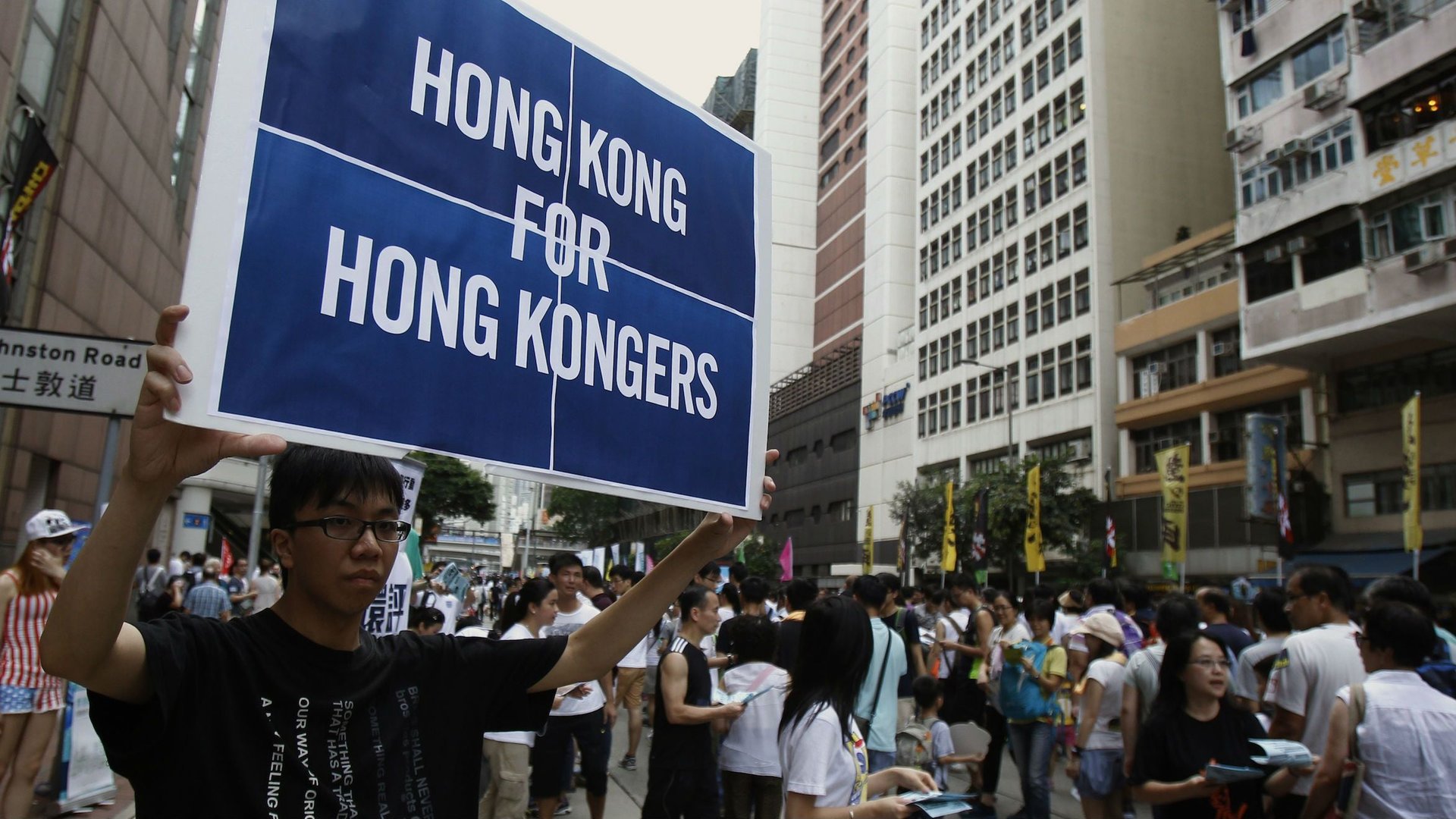

This month could bring major protests in Hong Kong, as Beijing is expected to announce proposed rules for the semi-autonomous territory’s 2017 election for a new chief executive. Students and other pro-democracy activists have promised widespread demonstrations in Hong Kong’s central financial district if, as expected, Beijing tries to limit the slate of candidates who can participate to a pre-screened group approved by the Communist Party leadership.
Former chief secretary Anson Chan, the highest-ranking civil servant in Hong Kong under British rule before the one-time colony was handed over to Beijing, is one of several public figures that have been lobbying Beijing and the international community to reach some sort of compromise. She spoke to Quartz about what’s at stake.
Quartz: How does the political climate in Hong Kong right now compare to previous times of transition?
Anson Chan: I’ve never seen Hong Kong so divided. We see a steady chipping away of our freedoms. The main concern now is China’s commitment toward faithfully implementing the Basic Law in terms of of maintaining “one country, two systems.” There’s a feeling that if we have the right to elect our own chief executive instead of having one thrust upon us by Beijing, then we’re in a position to do something if the chief executive doesn’t turn out to be fulfilling his duties in the eyes of the community.
Hong Kong has always been through difficult spots. Every 10 years Hong Kong has gone through one trauma after another: bank runs, the 1967 riots, SARS in 2003, the Asian Financial Crisis, and then the 2008 financial crisis. But we’ve come through all these, and every time we’ve emerged in some ways stronger. All that is because you have “one country two systems.”
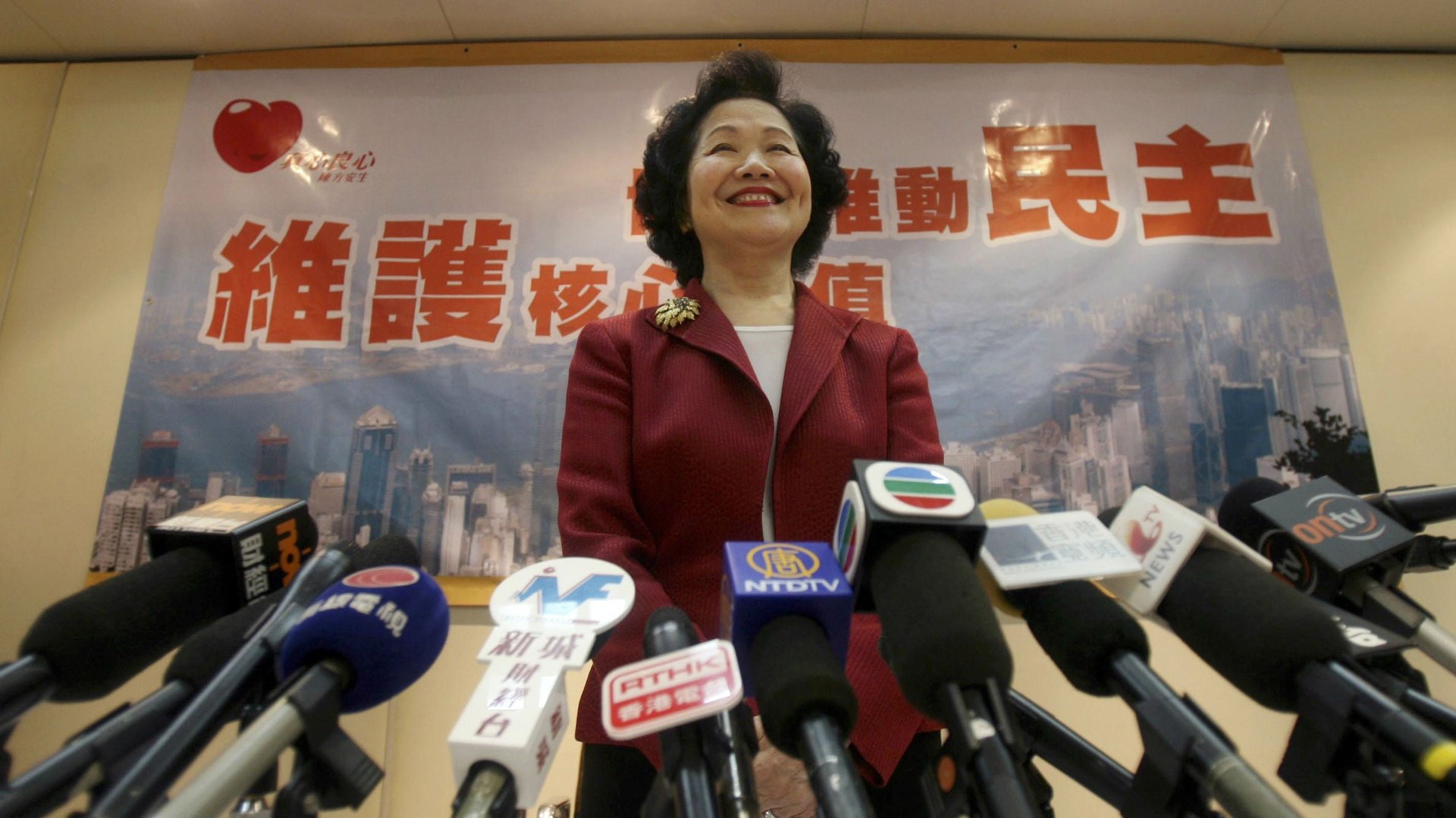
Q: Are there any signs that Beijing will meet the protesters’ demands?
AC: There are more moderate voices [in Beijing], but the moderate voices are not being heard. It is the hardliners, the diehard conservatives who are having a main say, and their view is, “Look at the rest of the world, everyone is jumping on the bandwagon, everyone wants to do trade and invest and have a bilateral relationship with China.” So the hardliners both in Beijing and even here are saying, “Maybe, 17 years after the handover, who needs Hong Kong?” Particularly if Hong Kong is agitating for universal suffrage.
Q: You mentioned that some say Beijing can’t allow truly open elections in Hong Kong because it could inspire people in mainland China to make similar demands—a contagion effect. Do you get the sense that is a real concern?
AC: I do not think it is a real concern. I think it reflects lack of confidence on the part of leadership in Beijing. We all know endemic corruption is so deep-rooted in China. It is difficult to stamp out endemic corruption unless you set up the necessary institutional underpinnings. You can, from time to time, catch even big flies, and you can catch certainly all the small fishes, but you are never going to deal effectively with stamping out endemic corruption until you acknowledge that fact. But once you concede [you] need an independent judiciary, a clean civil service, you are actually looking at the demise of the one party rule, and that is not something [Beijing] is prepared to tolerate.
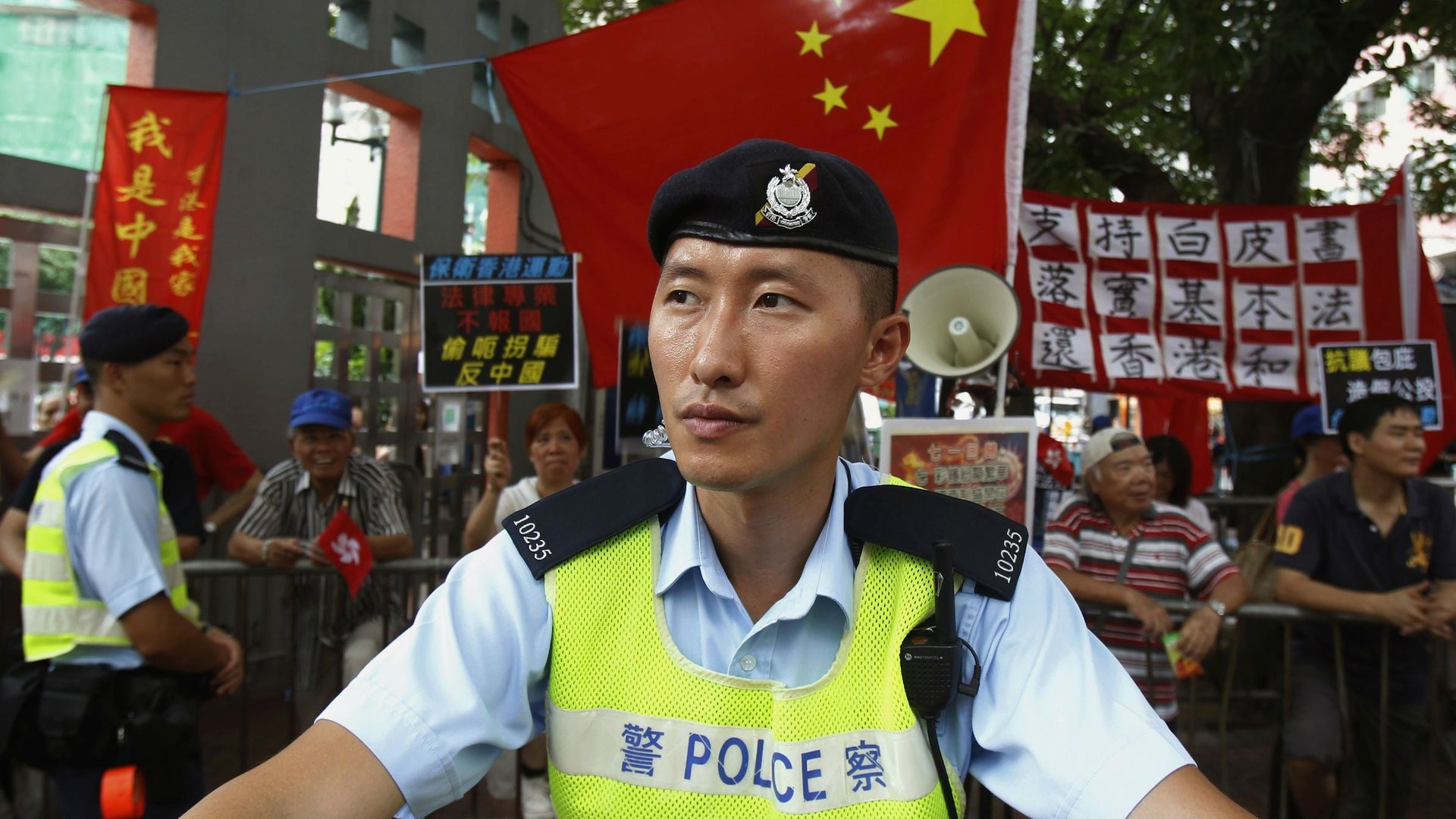
Q: Is Hong Kong a threat because it represents these things?
AC: Hong Kong has always been this. Why did Deng [Xiaoping] craft one country two systems? He saw for himself how Hong Kong had developed as a result of rule of law, rights and freedoms, and transparency. He said that this is the best model not only for ensuring Hong Kong’s stability, but to enable Hong Kong to play a very unique role in helping China open up and move towards market economy. Maybe he did not envision so much political reform, but he definitely had the vision that in these 50 years, China itself would evolve, change and perhaps move a bit closer to the Hong Kong system. But we are seeing that China has changed, in some ways for the better, but Hong Kong is leveling down.
Q: In what way is Hong Kong “leveling down”?
AC: Rule of law is already being eroded. We have the [Chinese] liaison office now blatantly interfering, so much so that they think nothing of calling up commercial banks like HSBC, Standard Chartered, and Bank of East Asia and telling them to lift their advertisement from an independent newspaper in Hong Kong. The reach of Beijing is getting wider and wider, both covertly and overtly.
You are beginning to see in Hong Kong the worst aspects of communist rule that rely on intimidation. Beijing has plenty of money. They throw this money about, doing whatever they do to intimidate people, to orchestrate opposition. Look at the way they have systematically demonized the entire Occupy Central movement.
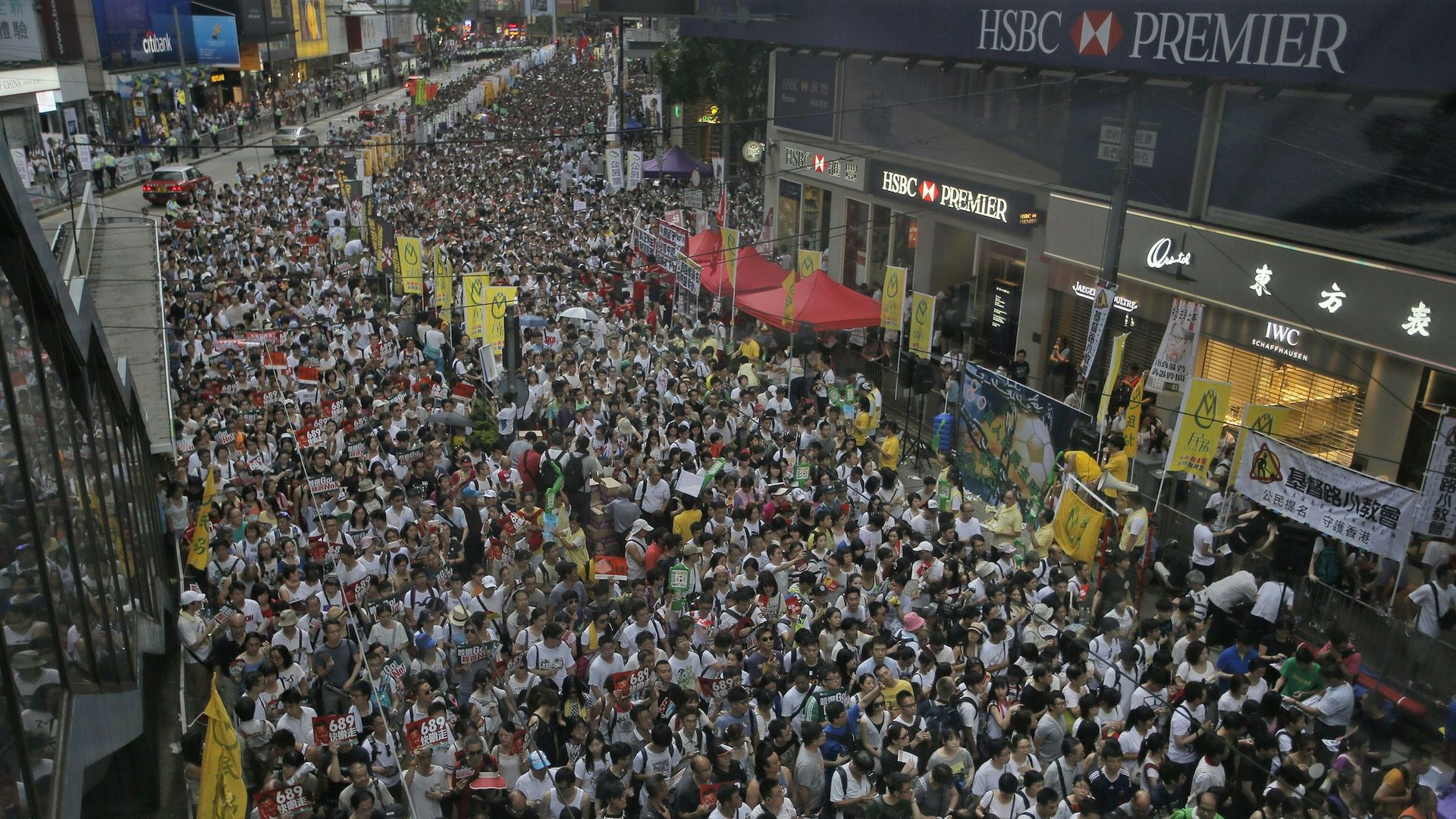
Q: Last month you visited the United Kingdom and called on the government to stand up for Hong Kong. What can the UK, or any country do?
AC: The UK is in a unique position because it is a cosignatory to the Joint Declaration. No country can stand idly by when one party to this supposed Joint Declaration decides to repudiate the provisions. They also promised, actually, both the then-prime minister John Major, and the then-foreign secretary Robin Cook, that if China repudiated its obligations under the Joint Declaration they would marshall international support and even take the case to the United Nations. The Joint Declaration was lodged with the United Nations. It is an international treaty.
Q: You’ve talked about protests in Macau and the Sunflower movement in Taiwan over Taiwan’s growing economic ties with Beijing. Is a Greater China protest movement gaining momentum?
AC: I don’t know. Within China, the Party is very formidable machinery. They are all pervasive, so it’s not so easy for mainlanders, however unhappy they may be. But I don’t know. If the government doesn’t acknowledge that with economic growth they have to loosen up on the political side, [they] are just creating problems and building up momentum and pressure for change.
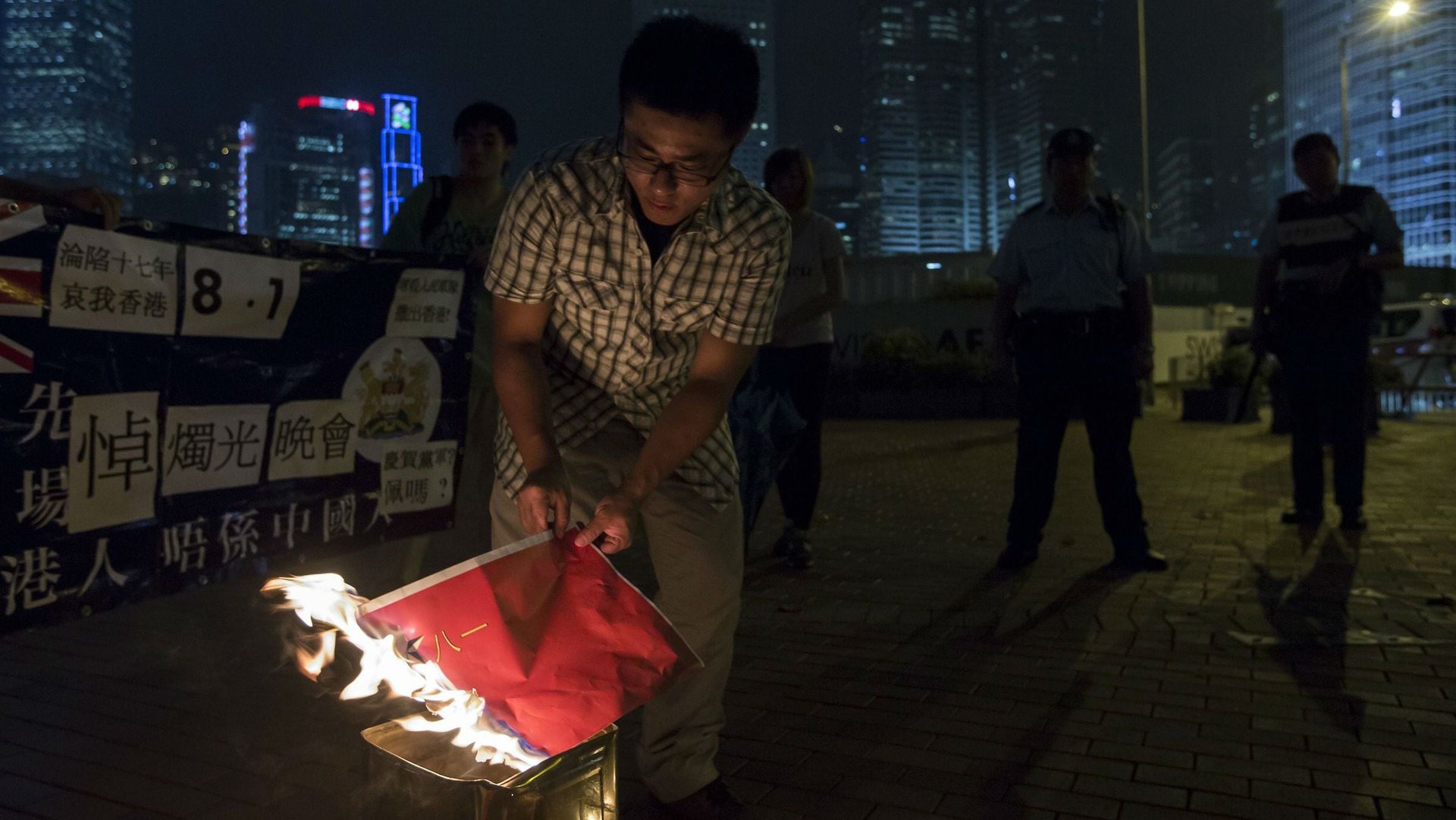
Q: What do you expect to see from Beijing’s proposal on universal suffrage in Hong Kong?
AC: The question really is whether Beijing has sufficiently and correctly read public sentiment here. If Beijing thinks it can force Hong Kong people to accept a set of proposals that are rigged to produce the outcome that Beijing wants, then I think they have misread the mood here. This time around round, having waited so many years, Hong Kong people will not accept that. I also hope Beijing will take note of the fact that we have a generation of young people who are fighting for their future.
My own view is at the moment that Beijing has not finally made up its mind. It is still gauging public opinion, and in that context, international views are clearly important. They are still waiting to see what the real bottom line is in Hong Kong.
Q: Why do you think young Hong Kongers are fighting for this cause?
AC: Young people face much more competition than I did when I was growing up. Property prices are at such a level that young people, even if they work all their lives, can’t even begin to make the first down payment. Social mobility is much more restricted than in my days, and competition is keener. Their whole future, even in the best of circumstances, is going to be much more difficult than when I was growing up.
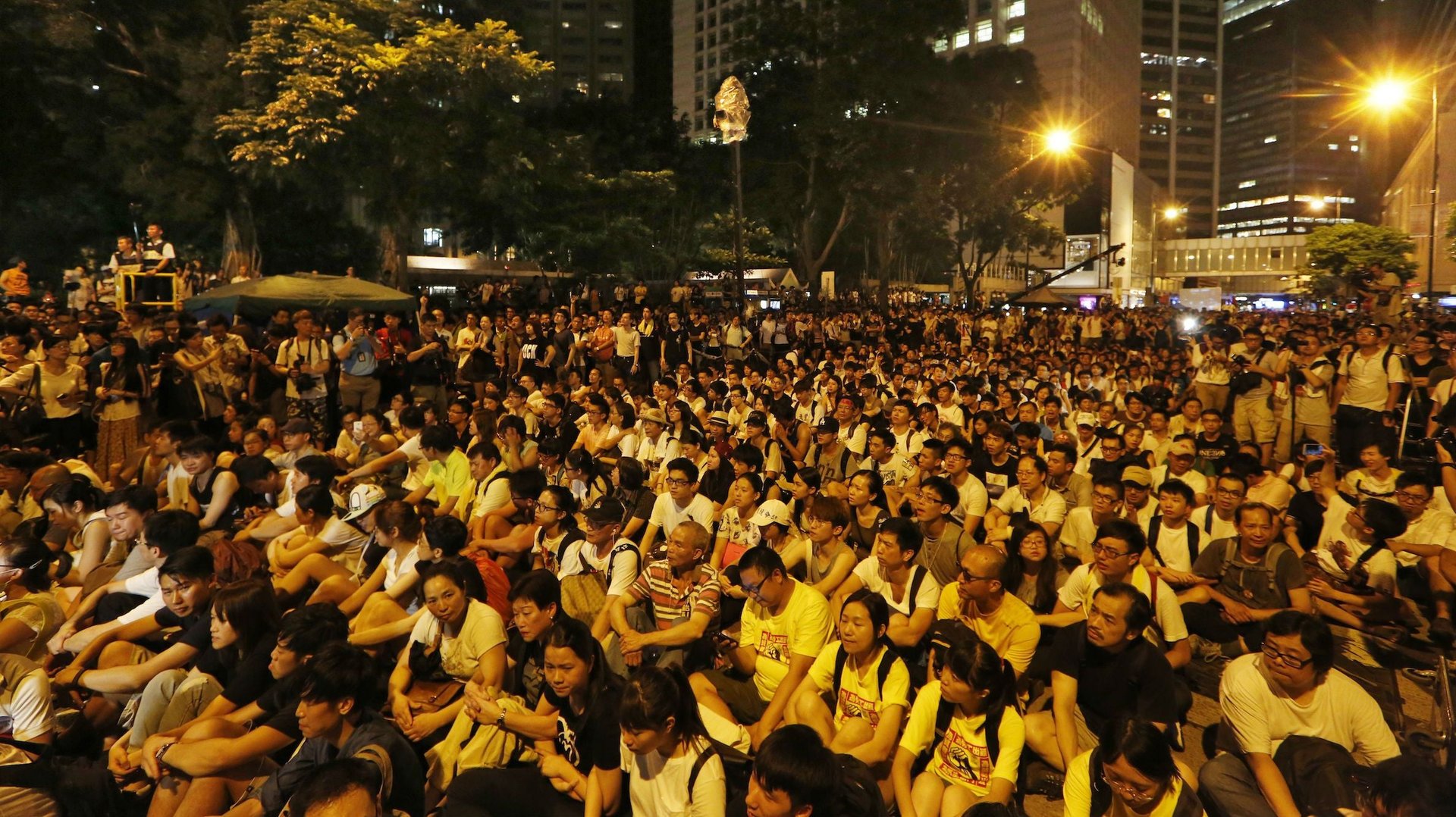
Q: If Beijing does not compromise on universal suffrage what do you think will happen?
AC: I think there will be a serious risk of social unrest, and this is not going to be good for China. It’s not going to be good for Hong Kong, and it’s not going to be good for the rest of the world.
Q: How worried are you by suggestions that Beijing would send the Chinese military stationed in Hong Kong, the People’s Liberation Army, to put down protests?
AC: I sincerely hope that doesn’t happen because that will create a very, very strong reaction. The basic law makes it quite clear that the PLA is stationed in Hong Kong for defense and nothing else. The PLA cannot be rolled out at the beck and call of Beijing. As one foreign investor put it to me, the day that they roll out the PLA is the day that money will flow out of Hong Kong.
Q: What do you think about the attitude among some people that there is little Hong Kong can do to pressure Beijing?
AC: My view is if you sit back and fold your arms and say, “I don’t like it, but what can I do?” then you are doomed right from the start. If people are prepared to stand up and make their voices heard, I’m not saying we will necessarily secure 100% success, but at least we stand a better chance of getting what we want or getting some change. What we are hoping in Hong Kong–what I am trying to do—is to stop the rate of deterioration in the hope that in the intervening years there will be changes for the better in mainland China.
This interview has been condensed and edited.